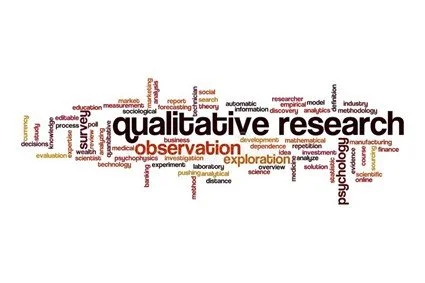March is Endometriosis Awareness Month, and so I’m sharing my story in the hope to not only encourage more research and awareness, but to make fellow sufferers feel less alone.
Read MoreTSC is a rare genetic condition, known for skin brain and skin lesions; therefore, it is classified as a neurocutaneous disorder. As I began caring for patients with TSC, I noticed that not many of my patients were Black. I looked to the literature and asked people in the community, but no one seemed to have answer for this possible disparity.
Read MoreRelieved at the success of their transplant procedures, and enjoying better health with their new organs, preventing cancer is not top of mind for most transplant patients. After determining that over half of their community members were unclear about how to monitor and manage their cancer risk, the Transplant Recipients’ International Organization (TRIO) leadership created the Post-Transplant Cancer (PTC) Project, a web-based educational tool to help transplant patients more effectively monitor and manage their cancer risk.
Read MoreAs someone who spent many years deeply involved with governmental leaders and scholars within the Republic of Poland, I am well aware of the lack of interest that events within central Europe let alone eastern Europe have generated within the academic community in the United States. To address this paucity and present the work of those directly impacted by Russian aggression heretofore unknown to most scholars in the West, I turned to the American Behavioral Scientist.
Read MoreOur paper entitled “Attachment Neuroscience and Martin Luther King, Jr.’s Nonviolence Philosophy: Implications for the 21st Century and Beyond” introduces a newly proposed psychological theory of nonviolence known as the Kingian Neuro-Relational Theory (KNRT).
Read MoreIn the early 16th century a “color” revolution took place on the Venetian peninsula. In contrast to the dominant approach in Rome and Florence, Venetian artists attributed primary importance to color in the pictorial space, rather than to composition.
Read MoreWhat matters most to LGBTQ+ people during times of pandemic are a sense of authenticity, belonging, and connection to Queer life in a straight world – as told in a synthesis of the COVID-19 qualitative research conducted by Queer and allied researchers in Deakin University’s Institute for Health Transformation, the School of Health and Social Development, and the School of Nursing and Midwifery.
Read MoreYouth homelessness is a violation of human rights and impacts approximately 3 million young people under the age of 25 in the United States each year. In addition to facing an array of obstacles in obtaining basic necessities on a daily basis, under-housed youth encounter injustices specifically pertaining to their reproductive and sexual health and rights.
Read MoreTo highlight the need for Pro-Black literacy pedagogy and research and to provide examples, we point you toward two special issues of the Journal of Early Childhood Literacy (JECL) focused on Emancipatory Pro-Black Early Literacy Research and Pedagogy.
Read MoreWorkplaces are more diverse and globalized than ever, and academics and practitioners have exerted more effort to create physical and digital workplaces where every employee feels included and respected. Yet, language-based stigma is still prevalent in the workplace, and nearly 1.2 billion nonnative English-speaking employees (i.e., employees speaking English as their second language) commonly encounter explicit and implicit mistreatment and struggle to move up the career ladder.
Read MoreDepending on your generation, you have your own quintessential examples of relationship churning. Gen Xers asked whether Friends’ Ross and Rachel were really on a break. Millennials sang along to Taylor Swift’s “We are never, ever getting back together” and parsed whether Khloe Kardashian had gotten back together with Tristan Thompson (she did, but they broke up again). Yet, research on romantic relationships all-too-often treats couples as easily categorized as together or separated.
Read MoreToday on International Epilepsy Day we are opening this special collection - Therapeutic roadmaps in rare epilepsies. This collection will feature articles that showcase how rare epilepsy patient advocacy organizations have taken a strategic leading role in helping to accelerate therapy development for their conditions.
Read MoreThere are numerous health benefits related to adherence to the Mediterranean diet, including lower systemic inflammation, lower DNA oxidative damage, greater insulin sensitivity, lower blood pressure, healthier lipid profile, and improved endothelial function, providing a protective effect against cardiometabolic diseases.
Read MoreLots has been written in the short time since on the development of generative AI tools and the use of ChatGPT in teaching, research and academic publishing. It has also sparked lots of philosophical conversations within the Research Integrity Group at SAGE about the ethics of using generative AI to ‘write’ (in quote marks) articles, about the potential risks of publishing articles not written (not in quote marks) by a human, and whether bots qualify as authors.
Read MoreSexual consent is a crucial topic that has gained increasing attention in recent years and has brought the importance of ethical consent practices to the forefront of our cultural conversation. But do we truly understand what sexual consent means and how to achieve it?
Read MoreEven though qualitative research is more respected nowadays, it is still seen in some academic circles just as a starting point in research. We still live in a world where quantitative approaches are dominant and considered more robust for relying on numerical or measurable data.
Read MoreSee those men? They’re the organization’s “good soldiers.” The ones who are credited with dutifully participating in organizational citizenship behavior (OCB). But, as my colleague Kylie Rochford and I realized, academic research paints a drastically skewed and imperfect picture regarding gender and OCB.
Read MoreWe suspect abusive bosses have existed since shortly after humans first organized themselves into working groups, and we imagine those early disputes might have involved violence. While violence is no longer a socially acceptable way to express dissatisfaction with either an employee or a boss, abusive bosses still exist.
Read MoreExperiencing work as meaningful is thought to be an essential human need sought by many and to have many positive consequences from better work-related health to an overall sense of life meaning. Lately, it has risen as a fundamentally important phenomenon at work, and still, there is a lot more to understand about employees’ authentic experiences of meaningful and meaningless work – that is how meaningful work is felt in moments.
Read More


















